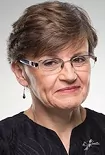61.6% of Australians who voted in the same-sex marriage survey voted 'yes'. In the pre-vote period many commentators expressed concerns that the legislation, if passed, would go beyond the immediate bounds of marriage and they questioned the competency of Australian law to adequately protect the human right of freedom of religion.
In response to these concerns, the Prime Minister has appointed an expert panel, chaired by the Hon Phillip Ruddock to perform a Religious Freedom Review. The expert panel comprises the president of the Human Rights Commission Rosalind Croucher, Australian Jesuit Priest and human rights lawyer Fr Frank Brennan, former Federal Court Judge Annabelle Bennett, and Professor Nicholas Aroney.
The expert panel released a statement on 10 January 2018, which called for submissions by 14 February 2018. The final review report is due to the Prime Minister by 31 March 2018.
Submissions will not be published, unless the author has given their consent. This level of confidentiality in the review process has been criticised. Mr Ruddock has attempted to reassure the Australian people that he will make the process as open as possible.
The Review's Terms of Reference are: firstly, to consider the intersection between the enjoyment of the freedom of religion and other human rights. Secondly, to have regard to any previous or ongoing reviews or inquiries that it considers relevant. Finally, to consult as widely as it considers necessary.
An area of interest is the conflict with anti-discrimination laws, for example section 49ZP of the Anti-Discrimination Act 1977 (NSW) makes it unlawful to refuse to provide a service or goods to someone based on homosexuality. This conflicts with education freedoms. Section 47(3) of the Marriage Amendment (Definition and Religious Freedoms) Bill 2017 further asserts that only ministers of a religion or bodies established for religious purposes can refuse to provide facilities, goods and services for same-sex marriage. Confusion may occur over what is meant by 'bodies established for religious purpose' as there has yet to be a clear definition seen in statute.
Parents have expressed fears in that they will not have control over their children's religious education. They are concerned about modifications to the primary and secondary school curriculum. Against this concern, the Panel should recognise that currently, there is no plan to change the school syllabus and that Safe Schools resources are currently not a mandatory component of any National, State or Territory curriculum.
We query whether the time allowed to the Panel is sufficient to address such a broad topic as preservation of religious freedom.
The content of this article is intended to provide a general guide to the subject matter. Specialist advice should be sought about your specific circumstances.

